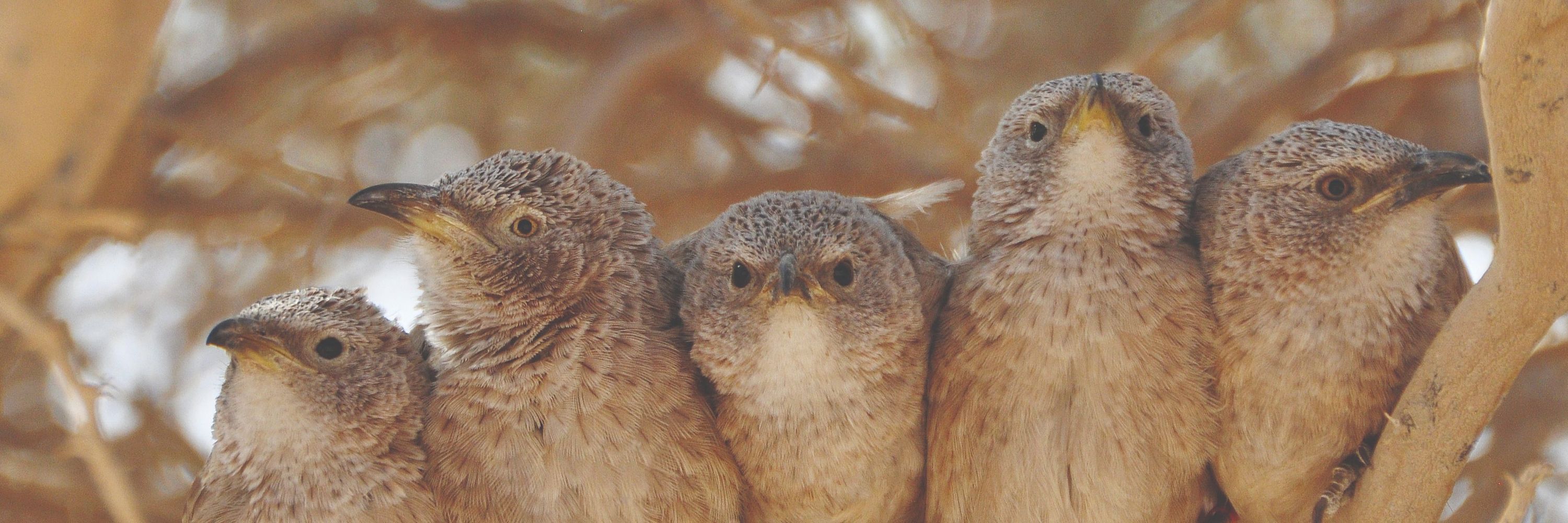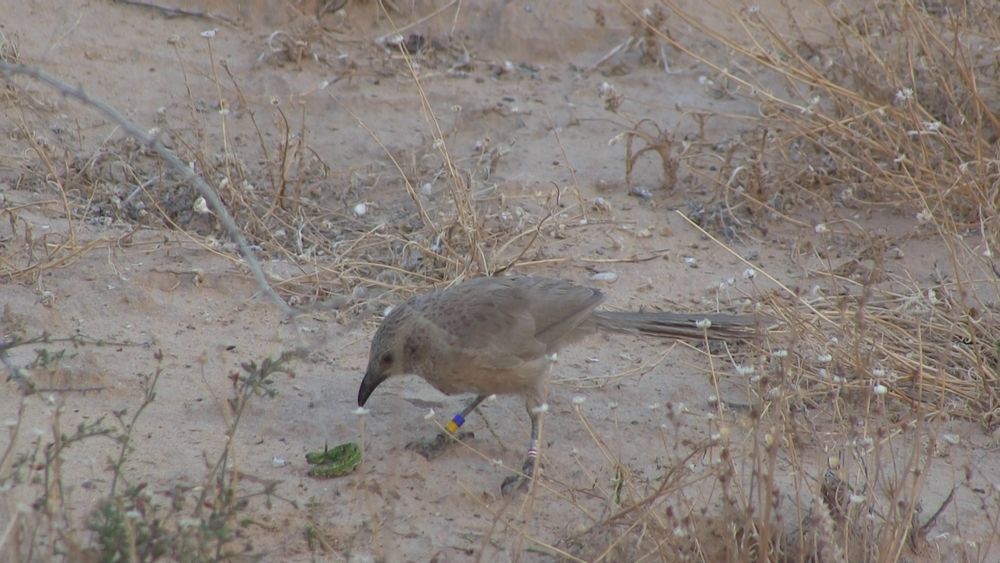
Yitzchak Ben Mocha
@benmocha.bsky.social
Ethologist.
Postdoc at CASCB @cbehav.bsky.social.
Associate editor at #ProcB.
Animal and human rights advocate.
Curator of the Cooperative Breeding Database: @co-breed.bsky.social
Postdoc at CASCB @cbehav.bsky.social.
Associate editor at #ProcB.
Animal and human rights advocate.
Curator of the Cooperative Breeding Database: @co-breed.bsky.social
#speetol2025 attendees! If you have parental care data from wild birds or mammals, please discuss cooperation with @co-breed.bsky.social.
We offer FAIR co-authorship for data contributors.
I will be available during today's poster session.
besjournals.onlinelibrary.wiley.com/doi/10.1111/...
We offer FAIR co-authorship for data contributors.
I will be available during today's poster session.
besjournals.onlinelibrary.wiley.com/doi/10.1111/...

October 31, 2025 at 9:23 AM
#speetol2025 attendees! If you have parental care data from wild birds or mammals, please discuss cooperation with @co-breed.bsky.social.
We offer FAIR co-authorship for data contributors.
I will be available during today's poster session.
besjournals.onlinelibrary.wiley.com/doi/10.1111/...
We offer FAIR co-authorship for data contributors.
I will be available during today's poster session.
besjournals.onlinelibrary.wiley.com/doi/10.1111/...
The Cooperative Breeding Database (Co-BreeD) joined Bluesky!
Follow it for updates on state-of-the-art datasets on cooperative breeding birds and mammals!
@co-breed.bsky.social
Follow it for updates on state-of-the-art datasets on cooperative breeding birds and mammals!
@co-breed.bsky.social

December 6, 2024 at 12:59 PM
The Cooperative Breeding Database (Co-BreeD) joined Bluesky!
Follow it for updates on state-of-the-art datasets on cooperative breeding birds and mammals!
@co-breed.bsky.social
Follow it for updates on state-of-the-art datasets on cooperative breeding birds and mammals!
@co-breed.bsky.social
We are expanding (again!)
PAID research assistant / MSc positions!
Flexible research on #cooperation / #communication / #animal_behaviour / #cognition / #human_evolution / #philosophy_of_biology
Residency in Leipzig /Konstanz is a big + !
Must be enrolled on a German university!
yitzchakbm@gmail.com
PAID research assistant / MSc positions!
Flexible research on #cooperation / #communication / #animal_behaviour / #cognition / #human_evolution / #philosophy_of_biology
Residency in Leipzig /Konstanz is a big + !
Must be enrolled on a German university!
yitzchakbm@gmail.com

August 2, 2024 at 7:33 PM
We are expanding (again!)
PAID research assistant / MSc positions!
Flexible research on #cooperation / #communication / #animal_behaviour / #cognition / #human_evolution / #philosophy_of_biology
Residency in Leipzig /Konstanz is a big + !
Must be enrolled on a German university!
yitzchakbm@gmail.com
PAID research assistant / MSc positions!
Flexible research on #cooperation / #communication / #animal_behaviour / #cognition / #human_evolution / #philosophy_of_biology
Residency in Leipzig /Konstanz is a big + !
Must be enrolled on a German university!
yitzchakbm@gmail.com
8/9 Do Arabian babblers learn food processing skills from each other? Are there different processing “traditions” across populations? More exciting questions to be addressed soon… ( an Arabian babbler from a different population handles a caterpillar) 📸 @krista_natasha

April 27, 2024 at 9:14 AM
8/9 Do Arabian babblers learn food processing skills from each other? Are there different processing “traditions” across populations? More exciting questions to be addressed soon… ( an Arabian babbler from a different population handles a caterpillar) 📸 @krista_natasha
7/9 The birds selectively transported the prey to a proper substrate if the original one didn’t fit the right caterpillar manipulation. In this way, Arabian babblers can achieve higher efficiency in processing their food.

April 27, 2024 at 9:12 AM
7/9 The birds selectively transported the prey to a proper substrate if the original one didn’t fit the right caterpillar manipulation. In this way, Arabian babblers can achieve higher efficiency in processing their food.
6/9 Other caterpillar species (Hyles) are strongly pounded against a hard substrate until their gut, hypothesized to be parasitized or toxic, is expelled. Consequently, the birds consume only the outer part of the prey.


April 27, 2024 at 9:11 AM
6/9 Other caterpillar species (Hyles) are strongly pounded against a hard substrate until their gut, hypothesized to be parasitized or toxic, is expelled. Consequently, the birds consume only the outer part of the prey.
5/9 Moth caterpillars (Casama) with long toxic hairs are being carefully rubbed against sandy substrates. In this way, the hairs are removed, and the entire caterpillar can be eaten.


April 27, 2024 at 9:11 AM
5/9 Moth caterpillars (Casama) with long toxic hairs are being carefully rubbed against sandy substrates. In this way, the hairs are removed, and the entire caterpillar can be eaten.
4/9 We found that Arabian babblers fit the right processing methods and substrates to overcome different protective mechanisms of their prey. Such flexibility seems to be essential to survive in a resource-scarce environment.

April 27, 2024 at 9:10 AM
4/9 We found that Arabian babblers fit the right processing methods and substrates to overcome different protective mechanisms of their prey. Such flexibility seems to be essential to survive in a resource-scarce environment.
3/9 Arabian babblers live in extreme deserts and feed on diverse invertebrate species. These prey developed defensive mechanisms such as toxic hairs or hard cuticles. Hence, before gaining the joy of eating, babblers must manipulate the prey, and they know how to do it.

April 27, 2024 at 9:10 AM
3/9 Arabian babblers live in extreme deserts and feed on diverse invertebrate species. These prey developed defensive mechanisms such as toxic hairs or hard cuticles. Hence, before gaining the joy of eating, babblers must manipulate the prey, and they know how to do it.
2/9 Arabian babblers use tools (i.e. present objects) as a communicative means to invite conspecifics for copulation (www.frontiersin.org/articles/10....) and play (brill.com/view/journal...). But it’s the first time their use of environmental features for foraging is described.

April 27, 2024 at 9:09 AM
2/9 Arabian babblers use tools (i.e. present objects) as a communicative means to invite conspecifics for copulation (www.frontiersin.org/articles/10....) and play (brill.com/view/journal...). But it’s the first time their use of environmental features for foraging is described.
***Multiple prolonged and paid***
research assistant positions in Behavioural Ecology & Evolutionary Anthropology!
Thanks to a generous grant from Zukunftskolleg, the GCoo-BreeD project will be expanded dramatically.
Come work with a supportive and fair team and atmosphere!
research assistant positions in Behavioural Ecology & Evolutionary Anthropology!
Thanks to a generous grant from Zukunftskolleg, the GCoo-BreeD project will be expanded dramatically.
Come work with a supportive and fair team and atmosphere!


February 7, 2024 at 4:38 PM
***Multiple prolonged and paid***
research assistant positions in Behavioural Ecology & Evolutionary Anthropology!
Thanks to a generous grant from Zukunftskolleg, the GCoo-BreeD project will be expanded dramatically.
Come work with a supportive and fair team and atmosphere!
research assistant positions in Behavioural Ecology & Evolutionary Anthropology!
Thanks to a generous grant from Zukunftskolleg, the GCoo-BreeD project will be expanded dramatically.
Come work with a supportive and fair team and atmosphere!
*Paid research assistant position in Animal Behaviour!*
email your C.V. to Dr. Yitzchak Ben Mocha (yitzchakbm@gmail.com)
Please explain shortly how you meet the above requirements + use the email title (GCoo-BreeD job)
email your C.V. to Dr. Yitzchak Ben Mocha (yitzchakbm@gmail.com)
Please explain shortly how you meet the above requirements + use the email title (GCoo-BreeD job)


January 11, 2024 at 6:39 PM
*Paid research assistant position in Animal Behaviour!*
email your C.V. to Dr. Yitzchak Ben Mocha (yitzchakbm@gmail.com)
Please explain shortly how you meet the above requirements + use the email title (GCoo-BreeD job)
email your C.V. to Dr. Yitzchak Ben Mocha (yitzchakbm@gmail.com)
Please explain shortly how you meet the above requirements + use the email title (GCoo-BreeD job)

